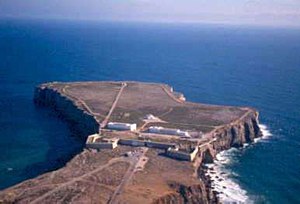(traduzido Invasões bárbaras) |
(Invasão dos Mouros (traduzido)) |
||
| Linha 16: | Linha 16: | ||
'''Português'''<br> | '''Português'''<br> | ||
</td></tr> | </td></tr> | ||
<tr><th colspan="2" bgcolor=lawngreen> | <tr><th colspan="2" bgcolor=lawngreen>Estatuto Oficial</th></tr> | ||
<tr><td valign="top">Língua oficial de:</td><td valign="top">[[Portugal]], [[Brasil]], [[Angola]], [[Moçambique]], [[Guiné Bissau]], [[Cabo Verde]], [[São Tomé e Príncipe]], [[Timor Leste]], [[Macau]]</td></tr> | <tr><td valign="top">Língua oficial de:</td><td valign="top">[[Portugal]], [[Brasil]], [[Angola]], [[Moçambique]], [[Guiné Bissau]], [[Cabo Verde]], [[São Tomé e Príncipe]], [[Timor Leste]], [[Macau]]</td></tr> | ||
<tr><td valign="top"> | <tr><td valign="top">Regulado por:</td><td>[[Instituto Internacional de Língua Portuguesa]]; [[CPLP]]</td></tr> | ||
<tr><th colspan="2" bgcolor=lawngreen>Cógido de Línguas</th></tr> | <tr><th colspan="2" bgcolor=lawngreen>Cógido de Línguas</th></tr> | ||
<tr><td valign="top">[[ISO 639]]-1:</td><td> pt</td></tr> | <tr><td valign="top">[[ISO 639]]-1:</td><td> pt</td></tr> | ||
| Linha 29: | Linha 29: | ||
O português chama-se ''A língua de Camões'' (por causa de [[Luís de Camões]], autor de [[Os Lusíadas]]); e a ''A última flor do Lácio''. | O português chama-se ''A língua de Camões'' (por causa de [[Luís de Camões]], autor de [[Os Lusíadas]]); e a ''A última flor do Lácio''. | ||
A língua portuguesa espalhou-se mundialmente no século XV e XVI assim que Portugal criava o primeiro e o mais longo império colonial e comercial, estendendo-se do [[Brasil]] nas américas até [[Macau]] na [[China]] e [[Japão]]. Como resultado dessa expanção, o português é agora língua oficial de vários países independentes do mundo, e é largamente falado ou estudado como segunda língua noutros. Existem ainda cerca de vinte línguas [[Crioulos Portugueses|crioulas portuguesas]]. É uma língua minoritária importante em [[Andorra]], [[Luxemburgo]], [[ | A língua portuguesa espalhou-se mundialmente no século XV e XVI assim que Portugal criava o primeiro e o mais longo império colonial e comercial, estendendo-se do [[Brasil]] nas américas até [[Macau]] na [[China]] e [[Japão]]. Como resultado dessa expanção, o português é agora língua oficial de vários países independentes do mundo, e é largamente falado ou estudado como segunda língua noutros. Existem ainda cerca de vinte línguas [[Crioulos Portugueses|crioulas portuguesas]]. É uma língua minoritária importante em [[Andorra]], [[Luxemburgo]], [[Namíbia]] e [[África do Sul]]. Imensas comunidades imigrantes falantes de português existem em muitas cidades pelo mundo fora, ex. [[Paris]] na [[França]], [[Boston]], [[New Jersey]] e [[Miami]] nos [[Estados Unidos da América|EUA]]. | ||
==História== | ==História== | ||
| Linha 40: | Linha 40: | ||
===Invasões bárbaras=== | ===Invasões bárbaras=== | ||
Entre [[409]] A.D. e [[711]], asssim que o Império Romano entrava em colápso, a Península Ibérica foi invadida por povos de origem germânica, conhecidos pelos romanos como [[bárbaros]]. Estes bárbaros (principalmente os Suévos e os Visigódos) absorveram rapidamente a cultura e língua romanas da península; contudo, e como as escolas romanas foram encerradas, o latim foi libertado para começar a evoluir sozinho. Assim que cada tribo bárbara falavam latim de maneira diferente, a uniformidade da península rompeu-se, levando à formação de línguas bem diferentes (Galaico-Português, Espanhol e Catalão). Os suévos, em particular, acredita-se que são responsáveis pela difereênciação línguistica dos portugueses e galegos quando comparados com os espanhóis. As línguas germânicas influênciaram o português em palabvras ligadas á guerra e violência, tal como "Guerra". | Entre [[409]] A.D. e [[711]], asssim que o Império Romano entrava em colápso, a Península Ibérica foi invadida por povos de origem germânica, conhecidos pelos romanos como [[bárbaros]]. Estes bárbaros (principalmente os Suévos e os Visigódos) absorveram rapidamente a cultura e língua romanas da península; contudo, e como as escolas romanas foram encerradas, o latim foi libertado para começar a evoluir sozinho. Assim que cada tribo bárbara falavam latim de maneira diferente, a uniformidade da península rompeu-se, levando à formação de línguas bem diferentes (Galaico-Português, Espanhol e Catalão). Os suévos, em particular, acredita-se que são responsáveis pela difereênciação línguistica dos portugueses e galegos quando comparados com os espanhóis. As línguas germânicas influênciaram o português em palabvras ligadas á guerra e violência, tal como "Guerra". | ||
===Invasão dos mouros=== | |||
Desde [[711]], com a invação dos mouros na península, o Árabe foi adoptado como língua administrativa nas regiões conquistadas. Contudo, a população continuou a falar Romanço; logo que os mouros foram expulsos, a influência exercida na língua foi pequena. O seu efeito principal está no léxico: o português moderno ainda tem um grande número de palavras de origem árabe, especialmente relacionadas com comida e agricultura, o que não tem equivalente noutras línguas latinas. A influência árabe é também visívei nos nomes de locais no sul do país, tal como "Algarve" e "Fátima". | |||
<!-- TRADUZIR --> | <!-- TRADUZIR --> | ||
===The rise of the Portuguese language=== | ===The rise of the Portuguese language=== | ||
Edição das 01h00min de 26 de maio de 2004
| Português | |
|---|---|
| Falado em: | Andorra, Angola, Brasil, Cabo Verde, Timor Leste, Guiné Bissau, Luxemburgo, Macau, Moçambique, Namíbia, Portugal, São Tomé e Príncipe, Índia, África do Sul, Espanha e 20 outros países |
| Total falantes: | 199 Milhões - 207 Milhões1 |
| Posição: | 6 |
| Genética classificaçãi: |
Indo-Europeias |
| Estatuto Oficial | |
| Língua oficial de: | Portugal, Brasil, Angola, Moçambique, Guiné Bissau, Cabo Verde, São Tomé e Príncipe, Timor Leste, Macau |
| Regulado por: | Instituto Internacional de Língua Portuguesa; CPLP |
| Cógido de Línguas | |
| ISO 639-1: | pt |
| ISO 639-2: (T): | por |
| SIL: | POR |
O Português é uma língua romança falada em Portugal e na maioria das suas antigas colónias, incluindo Brasil, Angola, Moçambique, Guiné Bissau e Timor Leste. Com 199 milhões de falantes nativos, o português é a sexta língua mãe mais popular no mundo, e a segunda língua romança, só ultrapassada pelo Espanhol.
O português chama-se A língua de Camões (por causa de Luís de Camões, autor de Os Lusíadas); e a A última flor do Lácio.
A língua portuguesa espalhou-se mundialmente no século XV e XVI assim que Portugal criava o primeiro e o mais longo império colonial e comercial, estendendo-se do Brasil nas américas até Macau na China e Japão. Como resultado dessa expanção, o português é agora língua oficial de vários países independentes do mundo, e é largamente falado ou estudado como segunda língua noutros. Existem ainda cerca de vinte línguas crioulas portuguesas. É uma língua minoritária importante em Andorra, Luxemburgo, Namíbia e África do Sul. Imensas comunidades imigrantes falantes de português existem em muitas cidades pelo mundo fora, ex. Paris na França, Boston, New Jersey e Miami nos EUA.
História
O português se desenvolveu na parte ocidental da Península Ibérica do Latim falado trazido pelos soldados romanos desde o século III a.C. A língua começou a se diferenciar das outras línguas romanças depois da queda do Império Romano e das inva~sões bárbaras no século V. Começou a ser usada em documentos escritos cerca do século IX, e no século XV já se tinha tornado numa língua com uma literatura rica.
Colonização Romana
Os romanos conquistaram a parte ocidental da Península Ibérica; a província romana da Lusitânia, actuais Portugal e a região espanhola da galiza em 218 a.C., e trouxeram com eles uma versão popular do Latim, o Latim Vulgar do qual se acredita que todas as línguas romanças descendem. Cerca de 90% do léxico do português vem do Latim: mesmo que a Península Ibérica tendo sido habitada desde bem antes da colonização romana, muitos poucos traços das línguas nativas presistem no português moderno.
Invasões bárbaras
Entre 409 A.D. e 711, asssim que o Império Romano entrava em colápso, a Península Ibérica foi invadida por povos de origem germânica, conhecidos pelos romanos como bárbaros. Estes bárbaros (principalmente os Suévos e os Visigódos) absorveram rapidamente a cultura e língua romanas da península; contudo, e como as escolas romanas foram encerradas, o latim foi libertado para começar a evoluir sozinho. Assim que cada tribo bárbara falavam latim de maneira diferente, a uniformidade da península rompeu-se, levando à formação de línguas bem diferentes (Galaico-Português, Espanhol e Catalão). Os suévos, em particular, acredita-se que são responsáveis pela difereênciação línguistica dos portugueses e galegos quando comparados com os espanhóis. As línguas germânicas influênciaram o português em palabvras ligadas á guerra e violência, tal como "Guerra".
Invasão dos mouros
Desde 711, com a invação dos mouros na península, o Árabe foi adoptado como língua administrativa nas regiões conquistadas. Contudo, a população continuou a falar Romanço; logo que os mouros foram expulsos, a influência exercida na língua foi pequena. O seu efeito principal está no léxico: o português moderno ainda tem um grande número de palavras de origem árabe, especialmente relacionadas com comida e agricultura, o que não tem equivalente noutras línguas latinas. A influência árabe é também visívei nos nomes de locais no sul do país, tal como "Algarve" e "Fátima".
The rise of the Portuguese language
The ancient Roman province of Lusitania had split into two separate provinces, Lusitania in the south and Galecia in the north. The Portuguese language developed mainly in Northern Portugal and Galicia, but was largely influenced by similar Romance dialects spoken in southern Portugal. For a long time the Romance dialect of that region evolved only as a spoken language.
The earliest surviving records of a distinctively Portuguese language are administrative documents from the 9th century, still interspersed with many phrases in Latin.
The written vernacular came gradually into general use in the following centuries. Portugal became an independent country in 1143, with King Alfonso I. The ensuing relative political and geographical separation between Portugal and Castille (later Spain) allowed the two countries to evolve their vernacular Latin in separate directions. In 1290, king Diniz created the first Portuguese University in Lisbon (the Estudo Geral) and decreed that Portuguese, then called the "Vulgar language" or Vulgar Latin should be used in preference to Classical Latin and known as "Portuguese language". In 1296, Portuguese is adopted by Royal Chancellary. Used now not only in poetry but also when writing law and in notaries.
Until 1350, the language Portuguese-Galician remained the native language of Galicia and Portugal only; but by the 14th century Portuguese had become a mature language with a rich literary tradition, and was adopted also by many Leonese, Castillian, Aragonese and Catalan poets. During that time, Galicia came under the influence of Castillan (basically modern Spanish), and the southern variant became the language of Portugal.
The Portuguese discoveries
Between the 14th and the 16th centuries, with the Portuguese discoveries, the Portuguese language spread to many regions of Asia, Africa and America. By the 16th century it had become a lingua franca in Asia and Africa, used not only for colonial administration and trade but also for communication between local officials and Europeans of all nationalities. In Ceylon (modern Sri Lanka) several kings became fluent speakers of Portuguese, and nobles often took Portuguese names. The spread of the language was helped by mixed marriages between Portuguese and local people (also very common in other areas of the world), and its association with the Catholic missionary efforts which led to the language being called Cristão ("Christian") in many places. The language continued popular even in despite severe measures taken by the Dutch to abolish it in Ceylon and Indonesia
Some Portuguese-speaking Christian communities in India, Sri Lanka, Malaysia and Indonesia preserved their language even after they were isolated from Portugal, and have evolved through the centuries into several Portuguese Creoles. Also, many words of Portuguese origin entered the lexicons of many other languages such as "arigatô" to mean Thank you in Japanese (from "obrigado"), "sepatu" to mean Shoe in Indonesian (from "sapato"), "keju" to mean cheese in Malay (from "queijo"), "meza" to mean table in Swahili (from "mesa").
The Renaissance
With the Renaissance, increases in the number of words of Classical Latin origin and erudite words of Greek origin increased the complexity of Portuguese. The end of "Old Portuguese" was marked by the publication of the Cancioneiro Geral de Garcia de Resende, in 1516. But Old Portuguese is still spoken, as a dialect, especially in São Tomé and Principe, but also Brazil and rural Portugal.
Indo-European - Italic - Romance - Italo-Western - Western - Gallo-Iberian - Ibero-Romance - West-Iberian - Portuguese-Galician
Portuguese is orthographically similar in many ways to Spanish, it is different in speech. A speaker of one may require some practice to effectively understand a speaker of the other. Compare, for example:
- Ela fecha sempre a janela antes de jantar. (Portuguese)
- Ella cierra siempre la ventana antes de cenar. (Spanish)
Almost all words in Spanish or Portuguese have close relatives in both languages if you are cultivated enough to use less common words:
- Ela encerra sempre a janela antes de cear. (less common Portuguese)
(Which translates as "She always closes the window before having dinner.")
Portuguese is somewhat similar to Catalan in sounds. Speakers of other Romance languages may find a peculiarity in the conjugating of certain apparently infinitive verbs. In particular, when constructing a future tense or conditional tense expression involving an indirect object pronoun, the pronoun is placed between the verb stem and the verb ending. For example, Dupondt said trazer-vos-emos o vosso ceptro. Translating as literally as possible, this is "bring (stem)-to you (formal)-we (future) the your sceptre". In English we would say, "We will bring you your sceptre." The form Nós vos traremos o vosso ceptro. is also correct, although less common in Portugal, but more common in Brazil.
In some places, Spanish and Portuguese are spoken almost interchangeably. Portuguese speakers are generally able to read Spanish, and Spanish speakers are generally able to read Portuguese, even if they can't understand the spoken language. Tourists in Portugal and Brazil should note that trying to communicate with the locals in Spanish may seem offensive. French or English languages should be preferred in Portugal, if not speaking Portuguese. Portuguese people appreciate an "olá" for hello and "tchau" (do not use "Adeus") for good-bye.
Geographic distribution
Portuguese is the first language in Angola, Brazil, Portugal and São Tomé and Príncipe.
Portuguese is also one of the primary languages of East Timor (with Tetum) and Macao (with Chinese). It is an official language, but not the first, in Cape Verde, Guinea-Bissau and Mozambique. It is largely spoken, but not official, in Andorra, Luxembourg and Namibia.
The Americas
Nevertheless, Portuguese is growing in importance in South America. Because of Brazil, it is being taught (and is popular, especially in Argentina) in the rest of the South American countries that constitute Mercosul (Mercosur). There are in Brazil, 182.1 million people who use Portuguese as their main language, but there are also first-language speakers in Argentina, Bolivia, Paraguay and Uruguay. In the rest of the Americas, there are also important communities in: Antigua and Barbuda, Bermuda, Canada, Guyana, Jamaica, United States (0.6 million active speakers in a community of 1.5 million, especially New Jersey) and Venezuela.
Europe
In Europe, Portuguese is spoken mainly in Portugal by its 10.3 million inhabitants, as first language. The language is also spoken throughout Europe by Portuguese influence, by more than 10% of the population of Luxembourg and Andorra. There are also strong Portuguese speaking communities in Belgium, France, Germany, Jersey and Switzerland. It is also spoken in Spain, especially in Galicia (known officially as Galician), Olivença and in Vale do Xalima (known as A fala).
Galician (also known as Galego or Gallego) can be seen as a somewhat Castillianized form of Portuguese. The current Galician Autonomous Government backs a standard variety of Galician which distances it from Portuguese and makes its written form more similar to Castillian Spanish. Nevertheless, there is another standard, used in some political circles and universities, that treats Galician as a Portuguese dialect with minor differences. Linguists have always recognized the unity of these linguistic varieties (for instance, Corominas, Lindley Cintra, Coseriu, etc), as they were once just the same language and both are relatively conservative varieties. However, in practice, they are sometimes treated as different languages by both populations mainly due to sociolinguistic factors, with works in Galician being translated into Portuguese and vice versa. During the Middle Ages, Galician and Portuguese were undoubtedly the same language, nowadays known as Portuguese-Galician, a language used for poetic works even in Castille. The only Galician deputy in the European Union Parliament speaks in Portuguese.
Africa
In sub-Saharan Africa, Portuguese is a growing language and is projected to be one of the most spoken languages within 50 years. As the populations of Angola and Mozambique continue to grow, their influence on Portuguese will becoming increasingly important. Angola and Mozambique, along with Cape Verde, Guinea-Bissau and São Tomé and Príncipe are known as the Paises Africanos de Língua Oficial Portuguesa (Official Portuguese Language African Countries) or PALOP, forming a community of almost 9 million native speakers. The Portuguese language especially grew in use after the independence of Portugal's former colonies. Independence movements from Guinea-Bissau to Mozambique saw it as an instrument to achieve their countries development and national unity. Portuguese is a minority language in Democratic Republic of Congo, Malawi, Namibia (Angolan refuges, ~20% of the Population), South Africa (more than one million speakers), Zambia and Zimbabwe.
There are strong Portuguese creoles in other parts of Africa. The south of Senegal, known as Casamance has an active community that is linked culturally and linguistically to Guinea-Bissau and learning Portuguese is popular. A Portuguese creole linked to São Tomé and Principe is the language of the island of Annobón, Equatorial Guinea.
In Guinea-Bissau and Cape Verde, the most widely-spoken languages are Portuguese creoles known as Crioulos. Most Capeverdians can also speak Standard Portuguese. There is some decreoulization due to education and the "Capeverdian fever", the poularity of Portugal's national TV channels. However, it is believe that the Creoles will be maintained despite those influences. The case is a bit different in Guinea-Bissau where, Portuguese and its creoles are spoken by more than 60% of the inhabitants, of which Portuguese itself is only spoken by 14%.
In São Tomé and Príncipe, the Portuguese used by the population is an archaic Portuguese, known as São Tomean Portuguese, presenting many similarities with Brazilian Portuguese. Politicians and the upper classes use the modern European Portuguese variety, much like the other PALOP countries. Three different Portuguese creoles are also spoken in São Tomé and Príncipe. Children usually can only speak Portuguese, because of their parents preference, and not having completed school, by the time they are adults they usually have learned a Portuguese Creole known as Forro.
In Angola, Portuguese is quickly becoming a national language rather than only an official language or a cohesion vehicle. By the census of 1980, in the capital, Luanda, Portuguese was the first language of 75% of a population of 2.5 million. In the entire country 60% of the 12.5 million inhabitants spoke Portuguses as their main spoken language . Most younger Angolans can only speak Portuguese. Angola receives several Portuguese and Brazilian televison stations, a Portuguese news TV station (SIC Notícias) became widily popular in Angola in a record time after it started broadcasting there in 2003. There are also many other native languages in Angola, though the population treats them as dialects and not languages. Some words from those languages have been borrowed by Portuguese, when the retornados returned to Portugal after Angola's independence. Words like iá (yes) and bué (many), common in the young and urban Portuguese population have their origin in Angolan languages. The young Portuguese socialite is now very familar with the Angolan dialect, due to Angola's increasing influence over the language.
Mozambique is among the countries where the Portuguese has the status of official language, being spoken essentially as a second language. However, it is the main language in the cities. According to the Census of 1997, Portuguese speakers account for more than 40% of the population, this number rises to more than 72% in the urban areas. But only 9% consider Portuguese as their main language (26% in the cities). All the Mozambican writers write in Portuguese, it has become attached to the colour and texture of the Mozambican culture.
Asia
Portuguese is also spoken in Asia, especially in East Timor, Goa and Daman in India, and Macau in China. In Goa, it is spoken by an increasingly small minority, it is seen as the language of grandparents, because it is no longer taught in schools or is the official, language. In Malacca in Malaysia, there is a Portuguese creole known as Cristão or Papiá Kristang still spoken by some of the Eurasian population. There are also active Portuguese creoles, especially Daman and Korlai) in India and Sri Lanka. In Japan, Portuguese is spoken by Brazilians of Japanese descent, known as dekasegui, who number approximately 250,000 people.
In East Timor, the national language is Tetum, an Austronesian language, but it has been heavily influenced by Portuguese. The reintroduction of Portuguese as an official language has caused suspicion and resentment among some younger East Timorese who have been educated under the Indonesian system, and do not speak it. Portuguese in East Timor is spoken by less than 20% of its population, mostly the elder generation, though this percentage is increasing as Portuguese is being taught to the younger generation and to interrested adults. East Timor asked the other CPLP nations to help it establish Portuguese as it's national language again. East Timor uses Portuguese to link itself to a larger international community and to differentiate itself from Indonesia. Xanana Gusmão, president of East Timor, believes that Portuguese will be widely spoken again within 10 years.
Official status
The CPLP or Community of Portuguese-Speaking Countries is an international organization consisting of the eight independent countries which have Portuguese as an official language. Portuguese is also an official language of the European Union, Mercosul and the African Union, and is a one of the working languages of other organizations. Except for the Asian territories (East Timor and Macau), Portuguese is the sole official language in each country.
Portuguese is the official language of:
Africa
- Angola main language: 60% spoken by: NA%
- Cape Verde main language: NA% spoken by: ~90%
- Guinea-Bissau main language: 14% spoken by: 14%
- Mozambique main language: 9% spoken by: 40%
- São Tomé and Príncipe main language: NA% spoken by: 95%
Asia
- Macau, China main language: 2% spoken by: NA%
- East Timor main language: NA% spoken by: 15%
Europe
- Portugal main language: ~100% spoken by: ~100%
South America
- Brazil main language: 99% spoken by: ~100%
While not Official, Portuguese has a sizeable amount of speakers in:
- Olivença (a Portuguese territory invaded by Spain in the 19th century)
- Namibia: 20%
- Luxembourg: 13%
- Andorra: 11%
- Daman, India: 10%
- Goa, India: 3-5%
- South Africa: 2%
- Spain: Galicia2 and Vale do Xálima3
Written varieties
Portuguese has two written varieties (Port. Variedades) but Portuguese speakers prefer to name them as Padrões (Eng. Patterns):
- European and African Portuguese
- Brazilian Portuguese
The differences between Brazilian Portuguese and European Portuguese varieties are mostly in vocabulary and pronunciation, especially in popular varieties. The differences are somewhat less than those between American English and British English. Both varieties are undoubtedly dialects of the same language and speakers from both varieties can easily understand each other.
Some apparent differences between the two varieties are not really differences. In Brazil, the term for socks is meias. And, in Portugal, peúgas. However, some dialectal zones in Portugal uses meias and don't use the word peúgas. This applies in almost all such apparent differences, except in the new terms, such as ônibus in Brazil, that is Autocarro in Portugal.
They are considered varieties not because of its distinct lexicon (considered natural even in a single country) but rather due to the writing form. Brazil eliminated from the language, the "c", "n" and "p" that are not used in the spoken language, a remanescent from the Latin past of the language.
| Portugal and Africa | Brazil | Translation |
|---|---|---|
| acção | ação | action |
| contracto | contrato | contract |
| direcção | direção | direction |
| eléctrico | elétrico | electric |
| óptimo | ótimo | great |
Also, there are differences in accent marks, due to:
- Different pronounciation. Brazil in words such as "Antônio" (Anthony) or "anônimo" (anonimous), where Portugal and Africa uses open ones, "António" or "anónimo", respectively. In the case of Africa, it is mostly due that the European Portuguese is prefered standard.
- Easy reading. Because "qu" can be read in two different ways in Portuguese: "ku" or "k", Brazil decided to facilitate it, using the diaresis. Insted of "cinquenta" they write "cinqüenta".
A Spelling Reform (Port. Reforma Ortográfica) was tried in 1990 to put an end to the two official written varieties of the language, was ratified by Brazil, Cape Verde and Portugal. The African countries of Portuguese language still not decided to ratify, due to problems in implementing it. The Agreement establishes that its entrance into practice will only occur when all the countries of the CPLP ratify it, and this process perhaps will not occur soon, even with Portuguese and Brazilian pressure in CPLP, to accelerate it in Africa. An other agreement was made for the new words that will enter in the language.
Dialects
main article: Portuguese dialects
African Portuguese especially the Angolan Portuguese and São Tomean Portuguese has many similarities with Brazilian Portuguese. Reveling that European Portuguese has changed more than the other varieties. Still, all aspects and sounds of all Portuguese (nation) dialects can be found in some Brazilian (nation) dialect. Even with independence of the former African colonies, the standard Portuguese of Portugal is still the prefered standard for most African Portuguese dialects. Thus, they are becoming somewhat more similar to standard European Portuguese. In Europe, Alto-Minhoto and Transmontano are very similar to Galician.
Major Portuguese dialects, with the standard spoken dialect of each country and an Sound Sample (external Link):
- Alentejano (sample) - Alentejo
- Algarvio (sample) - Algarve
- Alto-Minhoto (sample) - North of Braga
- Açoriano (sample) - Azores
- Baixo-Beirão; Alto-Alentejano (sample) - interior Central of Portugal
- Beirão (sample) - central Portugal
- Estremenho (sample) - Regions of Coimbra and Lisbon (European Portuguese)
- Nortenho (sample) - Regions of Braga and Oporto
- Madeirense (sample) - Madeira
- Transmontano (sample) Trás-os-Montes
- Angolano (sample) - Angola (Angolan Portuguese)
- Caboverdiano (sample) - Cape Verde (Cape Verdian Portuguese)
- Guineense (sample) - Guinea-Bissau (Guinea-Bissau Portuguese)
- Moçambicano (sample) - Mozambique (Mozambican Portuguese)
- Santomense (sample) - São Tomé and Principe (São Tomean Portuguese)
- Caipira - interior of the State of São Paulo
- Carioca (sample) - City and State of Rio de Janeiro (Brazilian Portuguese)
- Cearense - State of Ceará
- Baiano - Region of Bahia
- Gaúcho - Rio Grande do Sul
- Mineiro - State of Minas Gerais
- Nordestino (sample) - norestern states of Brazil
- Nortista - Amazon Basin states
- Paulistano - city of São Paulo
- Sertão - States of Goiás and Mato Grosso
- Sulista - south of Brazil
Other Areas
- Galego - Galiza, Spain (Galician)
- Timorense (sample) - East Timor (East Timorese Portuguese)
- Macaense (sample) - Macau, China (Macanese Portuguese)
Examples of words in Portuguese dialects from three different continents Angola (Africa), Portugal (Europe) and Brazil (South America).
Pinnapple
- Angola: abacaxi²
- Brazil: abacaxi², sometimes ananás¹
- Portugal: ananás¹, sometimes abacaxi²
Savannah
- Angola: anhara³,chana³, sometimes savana¹
- Brazil: savana¹
- Portugal: savana¹
Pretty girl
- Angola: barona¹, moça bonita¹
- Brazil: moça bonita¹, sometimes rapariga bonita¹
- Portugal: rapariga bonita¹ or moça bonita¹
Go away
- Angola: bazar³, ir embora ¹
- Brazil: ir embora ¹
- Portugal: ir embora¹ (or bazar³ among teenagers)
Party
- Angola: farra³, festa¹
- Portugal and Brazil: festa¹ (or farra³ - teenage parties)
Bus
- Portugal: autocarro
- Brazil: ônibus
- Angola: machimbombo
slum quarter
- Angola: muceque
- Brazil: favela
- Portugal: bairro de lata
(1) Portuguese origin (2) Brazilian origin (3) Angolan origin
Derived languages
main article: Portuguese Creole
Portugal in the period of discoveries and colonization created a linguistic contact with native languages and people of the discovered lands and thus pidgins were formed. Until the 18th century, these Portuguese pidgins were used as Lingua Franca in Asia and Africa. Later, the Portuguese pidgins were expanded grammatically and lexically, as it became a native language. These creoles are spoken, mostly, by inter-racial communities (Portuguese people with natives).
Cape Verde:
Equatorial Guinea:
Guinea-Bissau and Senegal:
India:
- Creole of Diu
- Creole of Vaipim
- Kristi
- Língua da Casa
Macau, China:
Malaysia, Singapore:
Netherlands Antilles and Aruba:
São Tomé and Principe:
Sri Lanka:
Suriname:
Some languages (or Portuguese dialects with Spanish influence) came to exist after an interaction with Spanish:
- A Fala, Spain
- Gallego, Spain (The official variety)
- Portunhol, Uruguai
Sounds
main article: Portuguese sounds
The following Table of Sounds is valid both in European, African and Brazilian Portuguese.
| letter | Portuguese | Meaning | Sound | letter | Portuguese | Meaning | Sound |
| a, ã | anjo | angel | area | n- | número | number | nothing |
| b | bola | ball | begin | nh | ninho | nest | sing |
| ca, co, cu | casa | house | cake | o | santo, bonito | saint, pretty | want, boo |
| ça, ce, ci, ço, çu | cedo, maçã | early, apple | city | ó | morte, moda, nó | death, fashion, knot | law |
| ch | cheque | check | she | ô | ovo, olho, avô | egg, eye, grandparent | know |
| d | dedo | finger | day | p | parte | part | park |
| e | leite, vale | milk, valey | cheese | qu | quanto, cinquenta | how much, fifty | quick |
| é | resto, festa, café | rest, party, coofe | bed | que qui | aquele, aqui | that one, here | key |
| ê | medo, letra, você | fear, letter, you | them | r | caro, barco | expensive, boat | car |
| f | ferro | iron | fear | rr | rosa, carro | rose, car | (French rr) |
| ga, go | gato | cat | gas | s-, ss | sapo, assado | frog, roasted | samba |
| ge, gi | gelo | ice | angel | sc, sç | piscina, desça | pool, go down | sea or she |
| gu | água | water | Nicaragua | s | galinhas, arcos | chikens, arcs | she or sea |
| gu | português | Portuguese | give | (vowel)s(vowel) | raso | evenness | zero |
| h | harpa | harp | silent letter | t | tosta | toast | tomato |
| i | idiota | idiot | meat | u | uvas | grapes | boo |
| j | jogo | game | Japan | v | vento | wind | verb |
| l | logo | soon | lake | x | caixa, México, Xadrez | box, Mexico, chess | she |
| lh | alho | garlic | (spanish ll) | x | próximo | next | sea |
| m- | mapa | map | must | ex(consonant) | excelente, texto | excelent, text | sea or she |
| -m, -n | campo, canto, Berlim | field, corner, Berlin | sing | z, exa, exe, exi, exo, exu | exame, natureza | exam, nature | zero |
Grammar
main article: Portuguese grammar
Verbs are divided into three declensions, which can be identified by looking at the infinitive ending, one of "-ar", "-er", "-ir" (and "-or", irregular verbs). Most verbs ends with "-ar", such as cantar (to sing). All verbs with the same ending follow the same patern.
In Portuguese, verbs are divided into moods:
- Imperative. Used to express a wish, command or advice
- Indicative. Used to express a fact
- Subjective. Used to express a wish or a possibility
The feminine gender in adjectives is formed in a different way to that in nouns. Most adjectives ending in a consonant remain unchanged: homem superior, mulher superior. This is also true for adjectives ending in "e": homem forte, mulher forte. Except for this, the noun and the adjective must always be in agreement.
Vocabulary
Since Portuguese is a Romance language, most of the language comes from Latin. However, other languages that have come into contact with Portuguese have left their mark.
Pre-Roman origin words
Very few traces of the native (lusitanians, Conians, Calicians or Iberians) or pre-Roman settlers like the Phoenicians, Carthaginians or Celts lexicon persist in the language, but there are some exceptions, most are unconfirmed:
- Abóbora (pumpkin)
- Bezerro (year-old calf)
- Louça (claw)
- Manteiga (butter)
- Sapo (frog)
- Cabana (hut)
- Cama (bed)
- Camisa (shirt)
- Carvalho(oak)
- Cerveja (beer)
- Touca (headress)
- Malha (mesh)
- Mapa (map)
- Saco (bag)
Barbarian origin words
- Barão (baron) from Ger. baro
- Ganhar (to win) from Ger. waidanjan
- Guerra (war) from Got. *wirro
- Roubar (to steal) from Ger. raubon
- Saga (Saga) from Got. saega
Arabic origin words
Arabic loan words represents almost 10 % of the Portuguese lexicon, here are some examples:
- Alcova (Alcove) from alkubba
- Aldeia (village) from aldaya
- Alface (lettuce) from alkhass
- Algarismo (algarism, number) from alkarizmi
- Almirante (admiral) from amir + ar-rahl
- Almofada (cushion) from almukhadda
- Âmbar (amber) from anbar
- Armazém (warehouse) from almahazan
- Arroz (rice) from arruz (loan from Greek óryza)
- Azeite (olive oil) from azzait
- Garrafa (bottle) from garrafâ
- Girafa (giraffe) from zurafa
- Jasmim (jasmin) from Persian jasamin
- Jarra (jar) from jarra
- Xadrez (Chess) from xatranj (loan from Sanscrit xaturanga)
- Xerife (sheriff) from xarif
Asian, Amerindian and African origin Words
With the Portuguese discoveries a linguistic contact was made, and Portuguese language became influenced by other languages other than European or Arabic. Many placenames and animals have Amerindian names in Brazil, in Angola and Mozambique, the same occurs with the local Bantu languages.
- Chá (Tea), from Chinese
- Jangada (raft), from Malay
- Manga (mango), from Malay mangga
- Abacaxi (pineapple) from Tupi ibá + cati
- Caju (cashew)
- Jaguar (jaguar) from Tupi-Guarani jaguara
- Mandioca (cassava)
- Pipoca (popcorn)
- Tatu (armadillo) from Guarani tatu
- Tucano (toucan) from Guarani tucan
Sub-saharan Africa:
- Banana (banana) from Wolof
- Farra (Wild party) from Bantu
- Chimpanzé (chimpanzee) from Bantu
Writing system
main article: Portuguese alphabet
Portuguese is written using the Latin alphabet with 26 letters. Three of them (K, W and Y) are only used for non-Portuguese origin words, in terms like Darwinismo (Darwinism, from English "Darwin").
Examples
There is a Portuguese Wikipedia
- Portuguese: português (Portu-guesh)
- Hello: olá (AW-LAH) Media:Ola.ogg
- Goodbye: tchau (CHAoo) -- "Adeus" is the standard, but it could be seem as offensive.
- Please: por favor (por faa-VOR)
- Thank you: obrigado (for men) (aw-bri-GAH-doo); obrigada (for women) (aw-bri-GAH-da)
- Sorry: desculpe (desh-KOOL-pe)
- That one: esse (masculine); essa (feminine) (e-se; e-sa - the firt "e" as in "them")
- How much?: quanto (KWAHNG-too)
- English: inglês (ing-GLESH - the "e" as in "them")
- yes: sim (as for English "sing")
- no: não (as for English "now", with nazalization)
- I don't understand: Não percebo (now per-se-boo - the "e" as in "them")
- Where's the bathroom?: Onde fica o quarto de banho? (ONG-dee FIH-ka oo kwartoo dee BANG-oo) - for Portugal; Onde fica o banheiro? (ONG-de FIH-ka oo BANG-eh-roo)- for Brazil
- generic toast: tchin-tchin (cheang-cheang); saúde (sa-OO-de)
- Do you speak English?: Fala inglês? (FAH-la ING-glesh)
See also: List of tongue-twisters- Common phrases in different languages
Literature
main article: Portuguese literature
To English speakers, the most famous writer in the Portuguese language is the poet Luís Vaz de Camoes or Luís Vaz Camoens (1524-June 10, 1580), author of the epic poem, the Lusiad.
Several other authors and poets are also internationally known, such as: Eça de Queirós (1845 - 1900), the most famous Portuguese novelist; Fernando Pessoa (1888 - 1935), one of the greatest poets in the Portuguese language's history; Jorge Amado (1912 - 2001, a popular Brazilian novelist; and José Saramago (born 1922) who was awarded the Nobel Prize for literature in 1998.
Notes
- [1] First and Second with first language speakers, respectively. Only counting figures from Andorra, Angola, Brazil, Cape Verde, China (Macao), East Timor, Guinea-Bissau, India (Goa, Daman), Luxembourg, Mozambique, Portugal and São Tomé and Príncipe (Not including Galicia and others). Considering second language speakers those people who are bilingual and use Portuguese as a second language.
- [2] Galicia is only included as a Portuguese language territory due that is confirmed that both languages are co-dialects. The government of Galicia regards Galician as a separate language.
- [3] A Fala is not recognized by the Spanish authorities to be a Portuguese dialect, althought there has been attempts to consider it Galician, but the locals do not want to use the Galician orthography. A Fala differs very few from the neighbouring Portuguese dialect in the other side of the border, but it will probably be recognized (if it will be) as a separate language.
External links
- Ethnologue report for Portuguese
- Pronunciation guide
- Instituto Camões Portuguese Language and Culture (Portuguese)
- The Portuguese Language Perspectives for the 21st Century
- Short Portuguese Lessons
- Diccionary of Vernacular Portuguese of Portugal, Brazil and Angola
- Introduction to Brazilian Portuguese
- Portuguese Language Resources
- Associaçom Galega da Língua Galician Reintegrationalists w/ Portuguese and Brazilians (Portuguese)
- Lives of the Portuguese-speaking World
- Biblioteca Nacional National Library of Portugal
- Biblioteca Nacional National Library of Brazil
Página externa
ca:Portuguès eo:Portugala lingvo es:portugués en:Portuguese language de:Portugiesische Sprache fr:Portugais gl:Portugués it:Lingua portoghese nl:portugees [[pl:J%EAzyk portugalski]] ro:Limba portugheză tokipona:toki Potuke






 " class="attachment-atbs-s-4_3 size-atbs-s-4_3 wp-post-image" alt="O que estudar para o enem 2023">
" class="attachment-atbs-s-4_3 size-atbs-s-4_3 wp-post-image" alt="O que estudar para o enem 2023"> " class="attachment-atbs-s-4_3 size-atbs-s-4_3 wp-post-image" alt="Qual melhor curso para fazer em 2023">
" class="attachment-atbs-s-4_3 size-atbs-s-4_3 wp-post-image" alt="Qual melhor curso para fazer em 2023"> " class="attachment-atbs-s-4_3 size-atbs-s-4_3 wp-post-image" alt="Enem: Conteúdos E Aulas On-Line São Opção Para Os Estudantes">
" class="attachment-atbs-s-4_3 size-atbs-s-4_3 wp-post-image" alt="Enem: Conteúdos E Aulas On-Line São Opção Para Os Estudantes"> " class="attachment-atbs-s-4_3 size-atbs-s-4_3 wp-post-image" alt="Como Fazer Uma Carta De Apresentação">
" class="attachment-atbs-s-4_3 size-atbs-s-4_3 wp-post-image" alt="Como Fazer Uma Carta De Apresentação"> " class="attachment-atbs-s-4_3 size-atbs-s-4_3 wp-post-image" alt="Como Escrever Uma Boa Redação">
" class="attachment-atbs-s-4_3 size-atbs-s-4_3 wp-post-image" alt="Como Escrever Uma Boa Redação"> " class="attachment-atbs-s-4_3 size-atbs-s-4_3 wp-post-image" alt="Concurso INSS edital 2022 publicado">
" class="attachment-atbs-s-4_3 size-atbs-s-4_3 wp-post-image" alt="Concurso INSS edital 2022 publicado">


